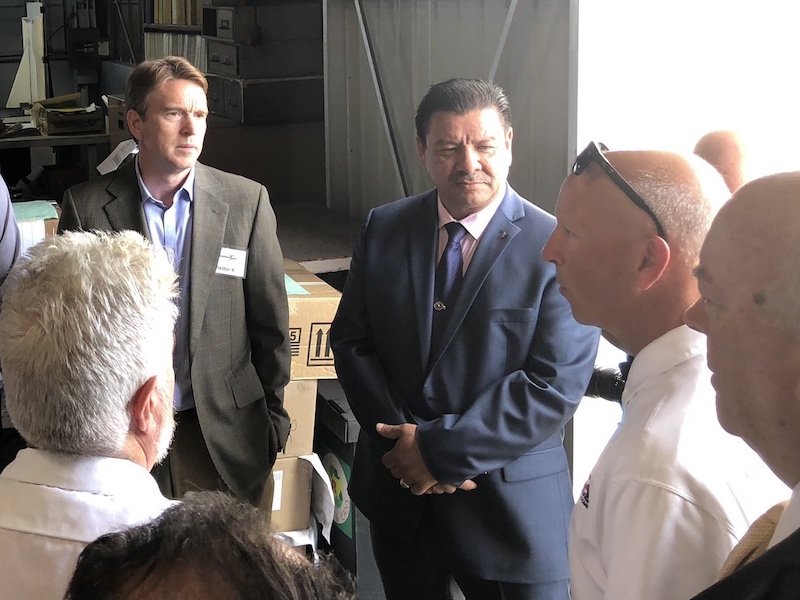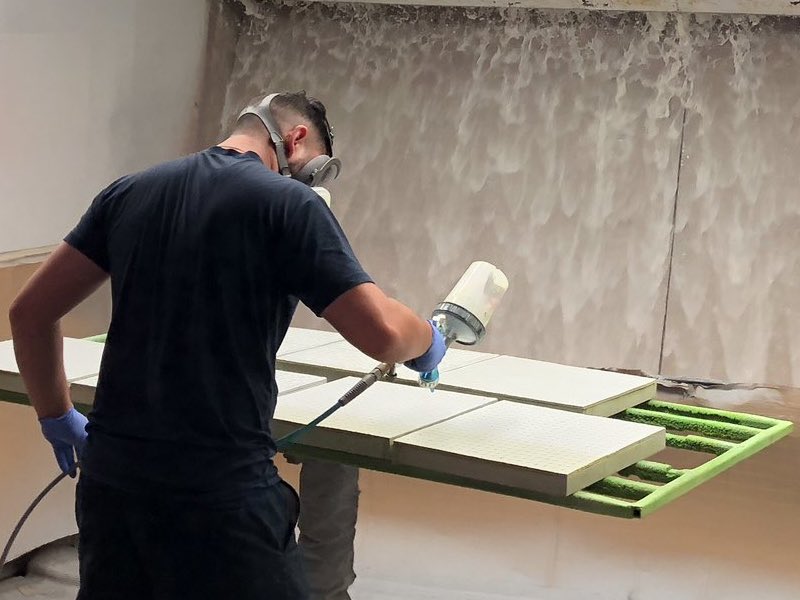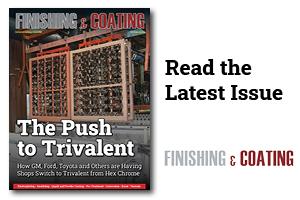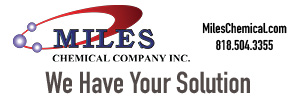Metal finishers in California are in a fight for their business lives as regulators are planning to shut down most of the industry based on proposed new rules that affect the use of hexavalent chromium in the state.
The California Air Resources Board (CARB) is proposing to ban new facilities later this year and phase out existing hexavalent chrome facilities beginning in 2023. Among the proposed directives:
- Banning any new hexavalent hard or decorative chromium electroplating facility or a new chromic acid anodizing facility after December 31, 2021.
- Banning existing decorative hexavalent chromium electroplating after January 1, 2023.
- Banning existing hard hexavalent chromium electroplating tanks after January 1, 2027.
- Banning existing chromic acid anodizing tanks after January 1, 2032.
 Justin GuzmanJustin Guzman, president of Aircraft X-Ray Laboratories in Huntington Park in Los Angeles, is also president of the Metal Finishing Associations of Southern California and says the proposed rules would effectively kill much of the metal finishing industry in the state.
Justin GuzmanJustin Guzman, president of Aircraft X-Ray Laboratories in Huntington Park in Los Angeles, is also president of the Metal Finishing Associations of Southern California and says the proposed rules would effectively kill much of the metal finishing industry in the state.
“I think metal finishing and paint in California is going to zero,” Guzman says. “It’s looking very dim.”
UPDATE: The MFACA is asking those supporting the finishing industry to contact or write letters to the CARB to protest these new rules; they are asking supporters to email Eugene Rubin of CARB at Eugene.rubin@arb.ca.gov with the subject "Hexavalent Chromium Airborne Toxic Control Measure (ATCM) for Chrome Plating and Chromic Acid Anodizing Operations," or call 1-916-323-0006
Vital to Aerospace, Defense, and Automotive Industry
Aircraft X-Ray applies a chromate spray to aerospace and defense parts for numerous customers, including Boeing, Lockheed Martin, Northrop Grumman, and more. Guzman says his facility has spent a considerable amount of money to meet the already stringent California requirements for air quality measures.
Guzman says many metal finishers have done the same to meet environmental standards but says CARB and other local and state agencies have tried to portray the finishing industry as heavy polluters who care only about profits over the environment or the safety of residents.
“You’re telling me I’m too stupid to understand environmental, or I’m too cheap,” Guzman says of CARB. “I take offense to both.”
Metal Finishing Associations of California runs both the southern and northern state chapters of the National Association for Surface Finishing, and it estimates that more than 100,000 people are employed at finishing and coating facilities.
Aside from aerospace and defense, other industries in California that rely heavily on metal finishers for coatings using chromium are automotive, machine parts, fasteners, industrial machinery, architectural, medical devices, fixtures, marine equipment, electric cars, and bicycles.
Less Than 1% of Total Hex Chrome Emissions
 Members of the MFASC gather at a recent facility tour.But Guzman says that facilities that utilize decorative/functional chrome and chromic acid anodize account for less than 1% of total hex chrome emissions for the entire state of California.
Members of the MFASC gather at a recent facility tour.But Guzman says that facilities that utilize decorative/functional chrome and chromic acid anodize account for less than 1% of total hex chrome emissions for the entire state of California.
“I’ve spent the money, and I understand regulatory, as do most metal finishers,” he says. “Hundreds of thousands of dollars — if not millions — to comply, and yet they keep coming after us.”
Dan Zinman, Vice President of Sales and Marketing at supplier Miles Chemical, is chair of the MFASC’s industry promotion committee and says the group is reaching out to other manufacturing industries to gain their support as finishers face their possible demise.
“CARB is not talking about emission control; they are talking about 100% elimination,” Zinman says. “When you take that approach of not controlling but eliminating — and especially in aerospace — this could be catastrophic to the industry.”
Both the MFASC chapters have begun a campaign of asking anyone involved in metal finishing — customers, OEMs, employees, and other manufacturing groups — to reach out to the CARB to protest these new rules.
Finishing Critical Components
Guzman says the end result of these new rules is that aerospace finishing — a critical component to the reliability of zero-fail parts and materials — could be outsourced to other parts of the U.S. or even overseas.
“The CARB is taking the burden of travel and the burden of defense and shifting it to the rest of the country,” Guzman says. “They’re saying ‘we don’t want to contaminate, and we don’t want to contribute to the defense of the country; you guys take care of it.’ It’s absolutely absurd.”
The possibility of losing their finishing businesses — and casting more people into the unemployment line — is personal to many facility owners and managers.
“Every time someone takes off on an aircraft and lands, it’s got my name on it,” Guzman says. “If you have a medical implant, it’s because of us. If cars last a little bit longer, it’s what we do.”
Visit the Metal Finishing Associations of California website HERE to learn more.



































